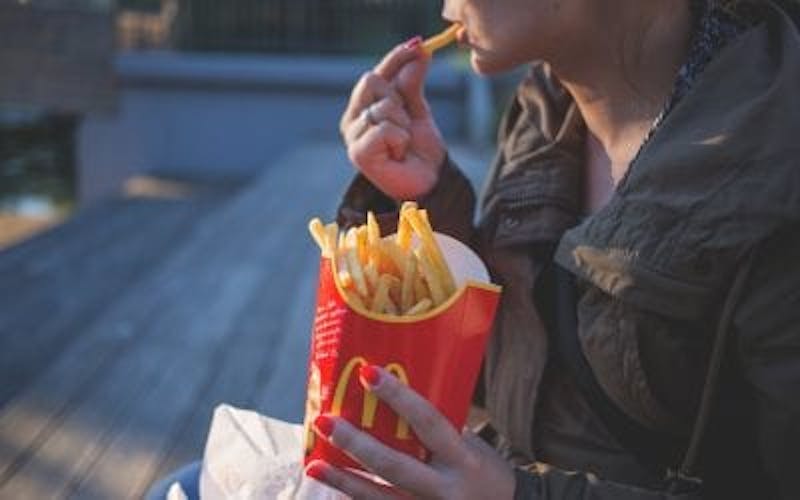
Have you ever been stressed out and found yourself thinking food would make you feel better? Have you ever been really happy about something and decided you needed to eat to celebrate? Many people have considered “Emotional Eating” which usually occurs as a coping mechanism. We consider eating to either suppress or soothe emotions such as stress, anger, fear, depression, boredom, happiness, etc. Major life events or even “day to day” hassles can cause any of the above emotions.
Physical hunger usually sets in slowly. You eventually experience hunger pangs which are contractions of the stomach that gnaw or rumble. When you are physically hungry, usually any food sounds appetizing. After eating, physical hunger symptoms diminish.
“Emotional hunger” presents itself differently. It usually occurs very quickly and intensely. You may have very specific cravings. After “emotional eating” the feelings you were trying to suppress still seem to linger and you sometimes feel worse from overeating or remorse.
Identifying triggers can be the first steps to recognizing “emotional eating”
Let’s review a few possible triggers:
- Stress can actually release cortisol, a hormone which can cause specific cravings.
- Boredom can sometimes trigger you to “fill the void” which may actually be feelings of dissatisfaction or “not having purpose”.
- Childhood memories can even trigger food cravings. For example, as a child you may remember eating pie with you grandmother and feeling happy. So, you could be trying to replicate those feelings of happiness when eating pie.
These emotions are normal but how we cope with them is important. The goal is to cope with emotions with healthy, non-food related mechanisms.
Once you have recognized triggers to “emotional eating”, you can implement some tools to help control “emotional eating” or transition to non-food related coping mechanisms. Journaling can be a valuable tool to see a clearer picture. When you combine a food diary with a mood diary, you may see a direct link with eating patterns and emotions.
Then the task is to employ the non-food related coping mechanisms. Examples of non-food related coping mechanisms include yoga, meditation, kickboxing, etc. Also, consider taking a break of 5-10 minutes and then reassess your emotional status. Additional resources include support from family, friends and even support groups.
Consider new hobbies to keep you busy such as knitting, working a crossword puzzle, playing with a dog, volunteering, etc. If you feel additional resources are needed, contact a professional mental health counselor to continue working on proper coping mechanisms. Coping with stress properly can take practice, but very beneficial in the long run.

